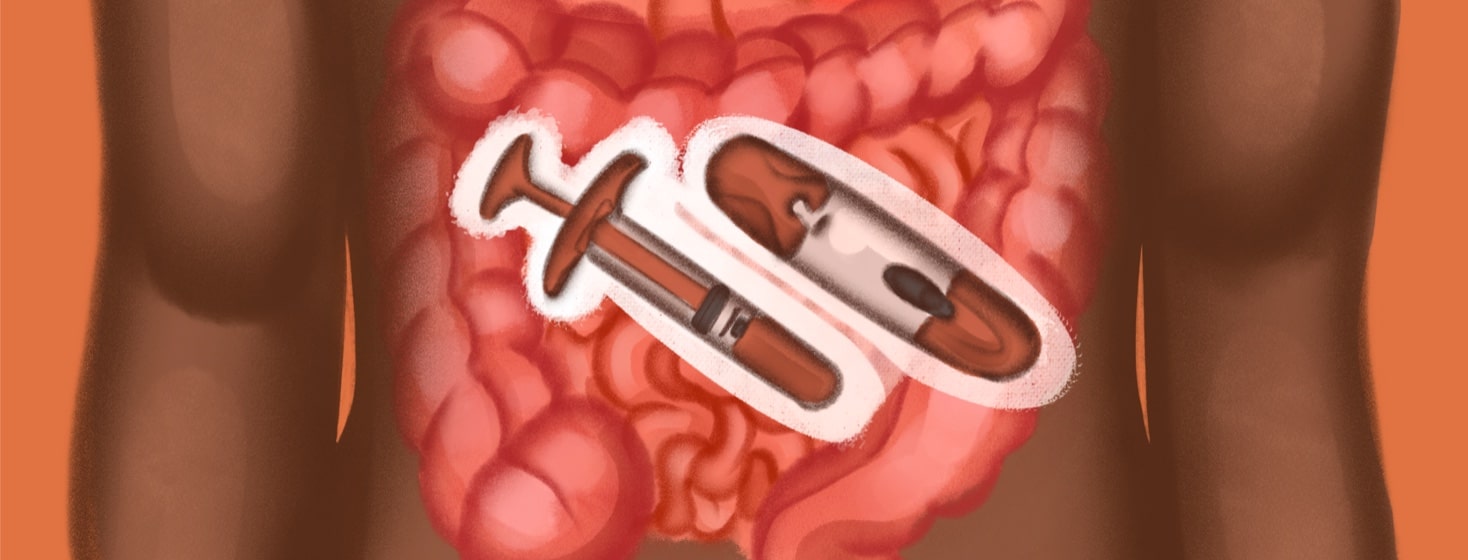My Take on Biologics?
As with IBD, we all react differently to medications and there are dozens of medications, or combinations of medications, on the market to help us try and live a "normal" life with our chronic illness. There have been great advancements when it comes to Crohn's and ulcerative colitis medications and one of the best class of drugs to date are biologics.
Back in the 1980s, there was not much available in ways of medication for my Crohn's. For me, it was a combination of high-dose prednisone combined with 5-ASA Salofalk (which is still used today). I had tried other combinations, but these 2 were helping me cope each day with Crohn's even though I still ended up having numerous surgeries and resections. I was on 2000mg of Salofalk and 40 mg of prednisone a day. However, I would usually take more prednisone than I should, especially when I was in pain. I took this combination from 1988 to 2012.
Biologics for Crohn's PLUS perianal disease
In 2002, my GI offered me a clinical trial for the biologic Remicade (infliximab). I tried to do my due diligence and read up on the drug and its possible side effects. In hindsight, I wish I hadn't done that. Every drug has its own side effects and after decades of "maintaining" on my drug combination, I had become comfortable with my situation and I had figured out how to live my life in my current condition at the time. Remicade was not only supposed to help my Crohn's but also was to help my fistulizing perianal disease.
It wasn't until 2012 when I was getting fed up and tired of my perianal disease and the fact that the pain was only was getting worse, and after lengthy discussions with my GI, that we decided to go ahead and try Remicade infusions every 8 weeks. Needless to say, I was very nervous at my first infusion and honestly was expecting to have some sort of reaction. But in the 8 years I was on Remicade, I only had a mild reaction at the infusion site at the first infusion and never again after that, even after I was switched from 8 weekly to 6 weekly.
Advice for those new to biologic infusions
My advice to new biologic infusion patients is to bring something to do. I always had my phone, but sometimes I would take a laptop or iPad to help pass the time. A blanket or heating pad is also a good recommendation. Make sure you drink a lot of water prior to the infusion especially, like me, if you have bad veins. Mine are always hard to find.
I started running my hand under hot water to help them pop, and then put on a ski glove to keep my hand warm until I got to the infusion site when I would wrap my hand in a heating pad. It worked great. And Remicade worked fantastically for my other Crohn's symptoms.
You may have to switch biologics at some point
Unfortunately, Remicade stopped working for me 8 years in. My body was no longer responding to it and I was switched to another biologic, Humira (adalimumab) injections. They are every 2 weeks and are self-inject pens, very easy and I can do it from home. I've been on it for 2 years now and I get my adalimumab levels checked every year.
It's been going great and my only regret is that I did not start biologic therapy sooner and had taken the chance in 2002 with the clinical trial.
Variety of options for Crohn's and ulcerative colitis
There are a variety of biologic therapies on the market today and more still in clinical trials. Some examples of other biologics are Entyvio (vedolizumab), Stelara (ustekinumab), Tysabri (natalizumab) and Cimzia (certolizumab pegol) to name a few.
Remicade, Humira, and Cimzia work on a protein called tumor necrosis factor alpha (TNF-alpha), one cause of the inflammation process in the body. Anti-TNF drugs work by seeking out and blocking the function of these TNF-alpha proteins.1
Entyvio and Tysabri are integrin receptor antagonists. These biologics target and block a protein found on the surface of white blood cells. This prevents the white blood cells from traveling into body tissue, since white blood cells are a part of the body's inflammation process.1
Stelara blocks certain proteins part of the inflammation process. These biologics are designed to help ease the symptoms of IBD and in some cases help heal fistulas.2
Essential to my quality of life with Crohn's
My take on biologics? They were a "Godsend" for me. They gave me a little bit more of my life back and reduced my Crohn's symptoms.
I envy the newly diagnosed. There are so many options now which is a far cry from what I was offered at diagnosis, which essentially was meds and resections. If your doctor ever offers you a choice to go on a biologic, I would personally encourage you to try it, especially if the medications you are currently on are not working or have stopped working.

Join the conversation